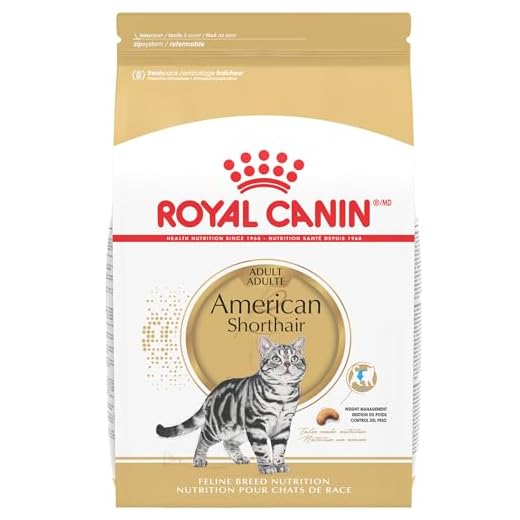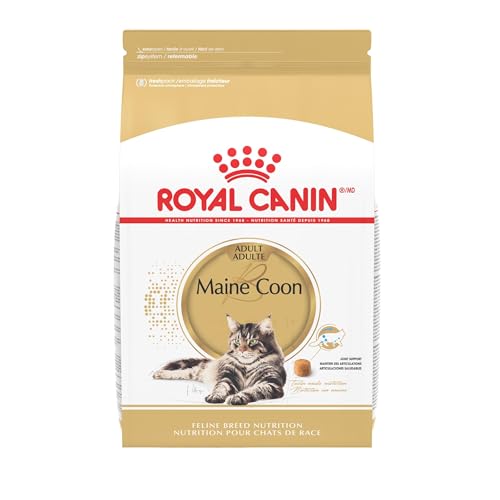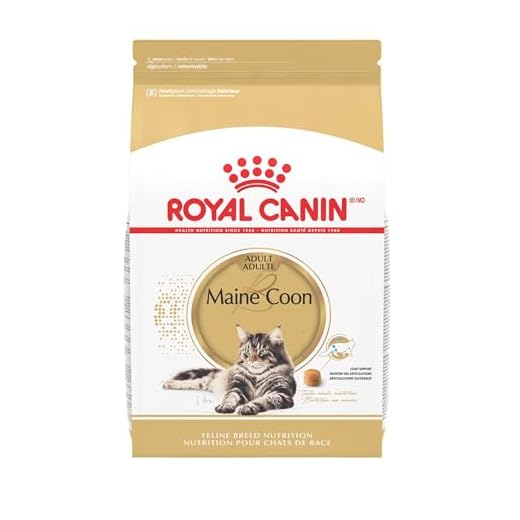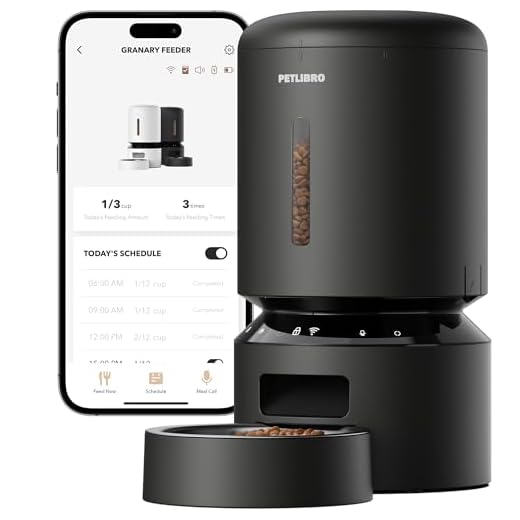



As someone who has explored various personalities and characteristics, I can confidently say that different types of furry friends suit different lifestyles. If you prefer a calm and gentle companion, consider a breed known for its laid-back demeanor. However, if you thrive on energy and playfulness, a more active and adventurous type might be your best match.
Understanding your daily routine, living situation, and personal preferences is crucial. For instance, if you live in a smaller space or have a busy schedule, a more independent and low-maintenance type would likely be ideal. On the other hand, if you have ample time to dedicate to play and socialization, a more interactive and affectionate variety could enrich your life tremendously.
It’s also wise to think about factors such as grooming needs and health considerations. Some companions require regular grooming, while others are more self-sufficient. Assessing these attributes will help you make an informed decision that leads to a harmonious living arrangement for both of you.
Choosing Your Feline Companion
To find the perfect furry friend, I suggest considering your lifestyle and preferences. If you enjoy an active home, a playful breed like the Bengal or Abyssinian may suit you well. For those who appreciate a calm and laid-back atmosphere, the Ragdoll or British Shorthair could be ideal.
Allergy sufferers should explore hypoallergenic options such as the Siberian or Balinese, which produce fewer allergens. If you prefer low-maintenance grooming, the American Shorthair or Russian Blue, with their short coats, can save you time and effort.
Social butterflies might want a sociable character like the Siamese or Burmese, as they love interaction. Conversely, if you prefer a more independent companion, the Norwegian Forest or Scottish Fold may be a better fit.
Consider your living space too; smaller apartments might benefit from a more relaxed breed, while larger homes can accommodate more energetic types. Personal preferences, such as coat patterns and colors, can also influence your choice, so take your time exploring the options available.
Assessing Your Lifestyle and Living Space for the Ideal Feline Companion
Consider your daily routine. If you’re often away from home or work long hours, a more independent companion might suit you well. Breeds like the British Shorthair thrive with minimal interaction, while others may require more attention.
Evaluate your living space. If you reside in a small apartment, look for a playful and adaptable type, such as a Siamese. They can entertain themselves and adjust to limited space. On the other hand, larger, more energetic varieties, like the Maine Coon, need plenty of room to roam.
Think about other inhabitants. If you have children or other pets, a gentle and sociable type, such as a Ragdoll, would be a good fit. Conversely, if you’re in a quieter household, more reserved options like the Burmese might be ideal.
Assess your activity level. Active individuals might enjoy a lively and playful companion like a Bengal, while those who prefer a calm environment may appreciate a Persian’s laid-back demeanor.
Lastly, take your allergies into account. Some individuals may react to certain fur types. Hypoallergenic breeds like the Siberian can be a great alternative for those with sensitivities.
Personality Traits to Consider
Understanding my unique personality can guide your choice. Here are traits to think about:
Playfulness
Some of us are naturally playful. If you enjoy interactive toys and games, consider a lively companion. Breeds like Abyssinians and Bengals thrive on activity. They’ll keep you entertained for hours!
Affection Level
If you seek a cuddly friend, look for those known for their affectionate nature. Ragdolls and Maine Coons are known to be loving and enjoy being close to their humans. They often follow you around and seek your lap as a favorite spot.
Independence
Not every feline craves constant attention. Breeds like British Shorthairs appreciate their personal space and can entertain themselves while you’re busy. This can be perfect for those with a hectic lifestyle.
Vocalization
Some individuals love to chat. Siamese and Burmese are quite vocal and enjoy “talking” to their humans. If you prefer a quieter home, consider less vocal types, such as Persians.
Energy Levels
High-energy companions, like the Russian Blue or the Sphynx, require more playtime and stimulation. If you prefer a more relaxed atmosphere, breeds like the Scottish Fold or the Exotic Shorthair are often content to lounge in the sun.
Grooming Needs
Long-haired varieties often require regular grooming. If you’re short on time, consider a short-haired pal like the American Shorthair. This will save you time on maintenance.
Considering these traits will help in finding a furry friend that fits your personality. If you’re curious about health issues, you might want to read about why does my cat vomit after eating dry food. Also, if you’re unsure about behavior, check out if can cats bark like dogs. Happy choosing!
Health and Care Requirements of Different Feline Varieties
As a Scottish Fold, I’ve seen the unique needs of various species. Each type comes with its own health considerations, so let’s break it down.
Common Health Issues
Persians often face respiratory issues due to their flat faces. Regular grooming helps prevent matting and skin problems. Siamese usually have strong personalities but may develop dental issues; ensuring proper dental care is key. Maine Coons, being larger, are prone to hip dysplasia, so maintaining a healthy weight is crucial.
Care Essentials
Nutrition varies by type. Some require specialized diets to address specific health concerns. Regular vet check-ups are vital. Playtime is essential for all; it keeps them active and mentally stimulated. Furthermore, social interaction is important. Some may thrive in busy households, while others prefer quieter environments.
Grooming routines differ too. Short-haired types need less frequent brushing, while long-haired individuals need daily attention. Keep an eye on their ears and teeth as well; regular cleaning can prevent many issues.
Creating a comfortable space tailored to your furry companion’s needs enhances their well-being. Always consider their unique traits and requirements to ensure a happy, healthy life together.
Video:
As someone who has explored various personalities and characteristics, I can confidently say that different types of furry friends suit different lifestyles. If you prefer a calm and gentle companion, consider a breed known for its laid-back demeanor. However, if you thrive on energy and playfulness, a more active and adventurous type might be your best match.
Understanding your daily routine, living situation, and personal preferences is crucial. For instance, if you live in a smaller space or have a busy schedule, a more independent and low-maintenance type would likely be ideal. On the other hand, if you have ample time to dedicate to play and socialization, a more interactive and affectionate variety could enrich your life tremendously.
It’s also wise to think about factors such as grooming needs and health considerations. Some companions require regular grooming, while others are more self-sufficient. Assessing these attributes will help you make an informed decision that leads to a harmonious living arrangement for both of you.
Choosing Your Feline Companion
To find the perfect furry friend, I suggest considering your lifestyle and preferences. If you enjoy an active home, a playful breed like the Bengal or Abyssinian may suit you well. For those who appreciate a calm and laid-back atmosphere, the Ragdoll or British Shorthair could be ideal.
Allergy sufferers should explore hypoallergenic options such as the Siberian or Balinese, which produce fewer allergens. If you prefer low-maintenance grooming, the American Shorthair or Russian Blue, with their short coats, can save you time and effort.
Social butterflies might want a sociable character like the Siamese or Burmese, as they love interaction. Conversely, if you prefer a more independent companion, the Norwegian Forest or Scottish Fold may be a better fit.
Consider your living space too; smaller apartments might benefit from a more relaxed breed, while larger homes can accommodate more energetic types. Personal preferences, such as coat patterns and colors, can also influence your choice, so take your time exploring the options available.
Assessing Your Lifestyle and Living Space for the Ideal Feline Companion
Consider your daily routine. If you’re often away from home or work long hours, a more independent companion might suit you well. Breeds like the British Shorthair thrive with minimal interaction, while others may require more attention.
Evaluate your living space. If you reside in a small apartment, look for a playful and adaptable type, such as a Siamese. They can entertain themselves and adjust to limited space. On the other hand, larger, more energetic varieties, like the Maine Coon, need plenty of room to roam.
Think about other inhabitants. If you have children or other pets, a gentle and sociable type, such as a Ragdoll, would be a good fit. Conversely, if you’re in a quieter household, more reserved options like the Burmese might be ideal.
Assess your activity level. Active individuals might enjoy a lively and playful companion like a Bengal, while those who prefer a calm environment may appreciate a Persian’s laid-back demeanor.
Lastly, take your allergies into account. Some individuals may react to certain fur types. Hypoallergenic breeds like the Siberian can be a great alternative for those with sensitivities.
Personality Traits to Consider
Understanding my unique personality can guide your choice. Here are traits to think about:
Playfulness
Some of us are naturally playful. If you enjoy interactive toys and games, consider a lively companion. Breeds like Abyssinians and Bengals thrive on activity. They’ll keep you entertained for hours!
Affection Level
If you seek a cuddly friend, look for those known for their affectionate nature. Ragdolls and Maine Coons are known to be loving and enjoy being close to their humans. They often follow you around and seek your lap as a favorite spot.
Independence
Not every feline craves constant attention. Breeds like British Shorthairs appreciate their personal space and can entertain themselves while you’re busy. This can be perfect for those with a hectic lifestyle.
Vocalization
Some individuals love to chat. Siamese and Burmese are quite vocal and enjoy “talking” to their humans. If you prefer a quieter home, consider less vocal types, such as Persians.
Energy Levels
High-energy companions, like the Russian Blue or the Sphynx, require more playtime and stimulation. If you prefer a more relaxed atmosphere, breeds like the Scottish Fold or the Exotic Shorthair are often content to lounge in the sun.
Grooming Needs
Long-haired varieties often require regular grooming. If you’re short on time, consider a short-haired pal like the American Shorthair. This will save you time on maintenance.
Considering these traits will help in finding a furry friend that fits your personality. If you’re curious about health issues, you might want to read about why does my cat vomit after eating dry food. Also, if you’re unsure about behavior, check out if can cats bark like dogs. Happy choosing!
Health and Care Requirements of Different Feline Varieties
As a Scottish Fold, I’ve seen the unique needs of various species. Each type comes with its own health considerations, so let’s break it down.
Common Health Issues
Persians often face respiratory issues due to their flat faces. Regular grooming helps prevent matting and skin problems. Siamese usually have strong personalities but may develop dental issues; ensuring proper dental care is key. Maine Coons, being larger, are prone to hip dysplasia, so maintaining a healthy weight is crucial.
Care Essentials
Nutrition varies by type. Some require specialized diets to address specific health concerns. Regular vet check-ups are vital. Playtime is essential for all; it keeps them active and mentally stimulated. Furthermore, social interaction is important. Some may thrive in busy households, while others prefer quieter environments.
Grooming routines differ too. Short-haired types need less frequent brushing, while long-haired individuals need daily attention. Keep an eye on their ears and teeth as well; regular cleaning can prevent many issues.
Creating a comfortable space tailored to your furry companion’s needs enhances their well-being. Always consider their unique traits and requirements to ensure a happy, healthy life together.
Video:
As someone who has explored various personalities and characteristics, I can confidently say that different types of furry friends suit different lifestyles. If you prefer a calm and gentle companion, consider a breed known for its laid-back demeanor. However, if you thrive on energy and playfulness, a more active and adventurous type might be your best match.
Understanding your daily routine, living situation, and personal preferences is crucial. For instance, if you live in a smaller space or have a busy schedule, a more independent and low-maintenance type would likely be ideal. On the other hand, if you have ample time to dedicate to play and socialization, a more interactive and affectionate variety could enrich your life tremendously.
It’s also wise to think about factors such as grooming needs and health considerations. Some companions require regular grooming, while others are more self-sufficient. Assessing these attributes will help you make an informed decision that leads to a harmonious living arrangement for both of you.
Choosing Your Feline Companion
To find the perfect furry friend, I suggest considering your lifestyle and preferences. If you enjoy an active home, a playful breed like the Bengal or Abyssinian may suit you well. For those who appreciate a calm and laid-back atmosphere, the Ragdoll or British Shorthair could be ideal.
Allergy sufferers should explore hypoallergenic options such as the Siberian or Balinese, which produce fewer allergens. If you prefer low-maintenance grooming, the American Shorthair or Russian Blue, with their short coats, can save you time and effort.
Social butterflies might want a sociable character like the Siamese or Burmese, as they love interaction. Conversely, if you prefer a more independent companion, the Norwegian Forest or Scottish Fold may be a better fit.
Consider your living space too; smaller apartments might benefit from a more relaxed breed, while larger homes can accommodate more energetic types. Personal preferences, such as coat patterns and colors, can also influence your choice, so take your time exploring the options available.
Assessing Your Lifestyle and Living Space for the Ideal Feline Companion
Consider your daily routine. If you’re often away from home or work long hours, a more independent companion might suit you well. Breeds like the British Shorthair thrive with minimal interaction, while others may require more attention.
Evaluate your living space. If you reside in a small apartment, look for a playful and adaptable type, such as a Siamese. They can entertain themselves and adjust to limited space. On the other hand, larger, more energetic varieties, like the Maine Coon, need plenty of room to roam.
Think about other inhabitants. If you have children or other pets, a gentle and sociable type, such as a Ragdoll, would be a good fit. Conversely, if you’re in a quieter household, more reserved options like the Burmese might be ideal.
Assess your activity level. Active individuals might enjoy a lively and playful companion like a Bengal, while those who prefer a calm environment may appreciate a Persian’s laid-back demeanor.
Lastly, take your allergies into account. Some individuals may react to certain fur types. Hypoallergenic breeds like the Siberian can be a great alternative for those with sensitivities.
Personality Traits to Consider
Understanding my unique personality can guide your choice. Here are traits to think about:
Playfulness
Some of us are naturally playful. If you enjoy interactive toys and games, consider a lively companion. Breeds like Abyssinians and Bengals thrive on activity. They’ll keep you entertained for hours!
Affection Level
If you seek a cuddly friend, look for those known for their affectionate nature. Ragdolls and Maine Coons are known to be loving and enjoy being close to their humans. They often follow you around and seek your lap as a favorite spot.
Independence
Not every feline craves constant attention. Breeds like British Shorthairs appreciate their personal space and can entertain themselves while you’re busy. This can be perfect for those with a hectic lifestyle.
Vocalization
Some individuals love to chat. Siamese and Burmese are quite vocal and enjoy “talking” to their humans. If you prefer a quieter home, consider less vocal types, such as Persians.
Energy Levels
High-energy companions, like the Russian Blue or the Sphynx, require more playtime and stimulation. If you prefer a more relaxed atmosphere, breeds like the Scottish Fold or the Exotic Shorthair are often content to lounge in the sun.
Grooming Needs
Long-haired varieties often require regular grooming. If you’re short on time, consider a short-haired pal like the American Shorthair. This will save you time on maintenance.
Considering these traits will help in finding a furry friend that fits your personality. If you’re curious about health issues, you might want to read about why does my cat vomit after eating dry food. Also, if you’re unsure about behavior, check out if can cats bark like dogs. Happy choosing!
Health and Care Requirements of Different Feline Varieties
As a Scottish Fold, I’ve seen the unique needs of various species. Each type comes with its own health considerations, so let’s break it down.
Common Health Issues
Persians often face respiratory issues due to their flat faces. Regular grooming helps prevent matting and skin problems. Siamese usually have strong personalities but may develop dental issues; ensuring proper dental care is key. Maine Coons, being larger, are prone to hip dysplasia, so maintaining a healthy weight is crucial.
Care Essentials
Nutrition varies by type. Some require specialized diets to address specific health concerns. Regular vet check-ups are vital. Playtime is essential for all; it keeps them active and mentally stimulated. Furthermore, social interaction is important. Some may thrive in busy households, while others prefer quieter environments.
Grooming routines differ too. Short-haired types need less frequent brushing, while long-haired individuals need daily attention. Keep an eye on their ears and teeth as well; regular cleaning can prevent many issues.
Creating a comfortable space tailored to your furry companion’s needs enhances their well-being. Always consider their unique traits and requirements to ensure a happy, healthy life together.










